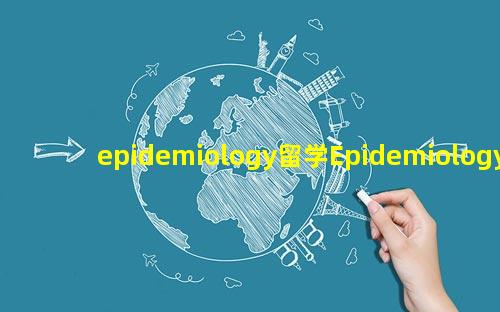 锦泰留学网
锦泰留学网"Epidemiology留学" refers to studying epidemiology as a discipline abroad. Epidemiology is the study of the distribution and determinants of health-related states or events in specified populations, and the application of this study to control health problems. Pursuing epidemiology studies abroad allows individuals to gain an international perspective, learn from experts in the field, and potentially participate in research or public health projects in different countries. This can provide valuable experiences and knowledge that can be applied in various public health settings globally.
Epidemiology and biostatistics are two closely related fields that are essential in studying and understanding public health and disease patterns.

Epidemiology is the study of the distribution, causes, and patterns of diseases in populations. Epidemiologists investigate various factors, such as genetics, environmental exposures, lifestyle choices, and social determinants of health, to determine the risk factors associated with different diseases. They also examine the spread of diseases, develop prevention and control strategies, and evaluate the effectiveness of interventions.
Biostatistics, on the other hand, is the application of statistical methods to biological and health-related data. Biostatisticians analyze and interpret data to derive meaningful conclusions and make informed decisions in areas like public health, clinical trials, and biomedical research. They design studies, develop sampling plans, calculate sample sizes, conduct statistical tests, and build predictive models to better understand health-related phenomena.
Both epidemiology and biostatistics rely heavily on the collection, analysis, and interpretation of data. Epidemiologists rely on biostatistical methods to analyze and interpret data collected from various sources, such as surveys, medical records, and registries. Biostatisticians, on the other hand, rely on epidemiological principles to design studies and select appropriate statistical methods.
In summary, while epidemiology focuses on the study of disease occurrence and distribution, biostatistics plays a crucial role in generating and analyzing the data that informs epidemiological investigations. Together, these fields are essential in the study and practice of public health.
"Epidemiology and Infection" is a scientific journal that publishes original research papers and reviews in the field of epidemiology and infection. It covers a wide range of topics including the transmission and control of infectious diseases, surveillance and outbreak investigations, mathematical modeling of infectious diseases, antimicrobial resistance, and public health interventions. The journal seeks to advance knowledge and understanding of infectious diseases and their impact on human and animal populations. It is published by Cambridge University Press and is peer-reviewed.
"Epidemiology and Health" is an international, open-access, peer-reviewed journal that focuses on public health research and practice. Published quarterly, the journal aims to advance the understanding and application of epidemiology in the prevention and control of diseases, and the promotion of health.
The journal covers a wide range of topics in epidemiology and public health, including infectious diseases, chronic diseases, environmental health, social determinants of health, health services research, and global health. It publishes original research articles, review articles, and short communications that present rigorous and high-quality research findings.
"Epidemiology and Health" encourages interdisciplinary approaches and welcomes research that integrates epidemiology with other disciplines such as genetics, biostatistics, health economics, and health policy. The journal also promotes the use of innovative research methods and tools in epidemiology, including computational modeling, machine learning, and big data analysis.
In addition to research articles, "Epidemiology and Health" publishes commentaries, editorials, and viewpoints on current issues in epidemiology and public health. These opinion pieces provide a platform for researchers, policymakers, and practitioners to share their perspectives and insights on important public health topics.
Overall, "Epidemiology and Health" aims to contribute to the development of evidence-based public health policies and interventions by disseminating high-quality research and promoting scientific exchange and collaboration in the field of epidemiology.